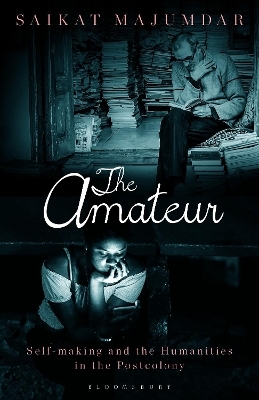
The Amateur
Self-Making and the Humanities in the Postcolony
Seiten
2024
Bloomsbury Academic USA (Verlag)
978-1-5013-9987-9 (ISBN)
Bloomsbury Academic USA (Verlag)
978-1-5013-9987-9 (ISBN)
Can ignorance, mistake, failure shape ways of reading, or do they disrupt its proper practice? What happens when the authority of modern education and culture places canonical western texts in the way of readers who live in worlds remote from their material contexts?
The Amateur reads patterns of autodidactism and intellectual self-formation under systems of colonial education that are variously repressive, exclusionary, broken, or narrowly instrumental. It outlines the development of a wide range of writers, activists, and thinkers whose failed relationships with institutions of knowledge curiously enabled their later success as popular intellectuals. Bringing current debates around reading together with the history of higher education in the postcolony, it focuses on three primary locations: Black intellectuals in apartheid-era South Africa in the aftermath of the Bantu Education Act of 1953, 20th century Caribbean writers who sought to understand the disembodied legacy of the diaspora through accidental encounters with literature and history, and writers from late-colonial and postcolonial India whose disruptive self-formation departed from the administrative project of professionalizing a particular kind of colonial subject.
Celebrating flawed and accidental forms of reading, writing, and learning along the periphery of the historical British Empire, Majumdar reveals an unexpected account of the humanities in the postcolony.
The Amateur reads patterns of autodidactism and intellectual self-formation under systems of colonial education that are variously repressive, exclusionary, broken, or narrowly instrumental. It outlines the development of a wide range of writers, activists, and thinkers whose failed relationships with institutions of knowledge curiously enabled their later success as popular intellectuals. Bringing current debates around reading together with the history of higher education in the postcolony, it focuses on three primary locations: Black intellectuals in apartheid-era South Africa in the aftermath of the Bantu Education Act of 1953, 20th century Caribbean writers who sought to understand the disembodied legacy of the diaspora through accidental encounters with literature and history, and writers from late-colonial and postcolonial India whose disruptive self-formation departed from the administrative project of professionalizing a particular kind of colonial subject.
Celebrating flawed and accidental forms of reading, writing, and learning along the periphery of the historical British Empire, Majumdar reveals an unexpected account of the humanities in the postcolony.
Saikat Majumdar is Professor of English & Creative Writing at Ashoka University, India. He is the author of a monograph, Prose of the World (2013) and five novels, including The Firebird/Play House (2015/2017), and The Remains of the Body (2024); and the co-editor of The Critic as Amateur (Bloomsbury, 2019).
Acknowledgements
1. The colonial map of misreading
2. Poor reading, weak theory
3. Autodidactic nation
4. Books, roots, pasts
5. The light and shadow of Empire
6. The violence of humanistic education
Notes
Bibliography
Index
| Erscheinungsdatum | 21.08.2024 |
|---|---|
| Verlagsort | New York |
| Sprache | englisch |
| Maße | 140 x 216 mm |
| Themenwelt | Geschichte ► Teilgebiete der Geschichte ► Wirtschaftsgeschichte |
| Geisteswissenschaften ► Sprach- / Literaturwissenschaft ► Anglistik / Amerikanistik | |
| Geisteswissenschaften ► Sprach- / Literaturwissenschaft ► Literaturwissenschaft | |
| ISBN-10 | 1-5013-9987-X / 150139987X |
| ISBN-13 | 978-1-5013-9987-9 / 9781501399879 |
| Zustand | Neuware |
| Haben Sie eine Frage zum Produkt? |
Mehr entdecken
aus dem Bereich
aus dem Bereich
die Ukraine, Polen und der Irrweg in der russischen Geschichte
Buch | Hardcover (2023)
C.H.Beck (Verlag)
CHF 39,20


